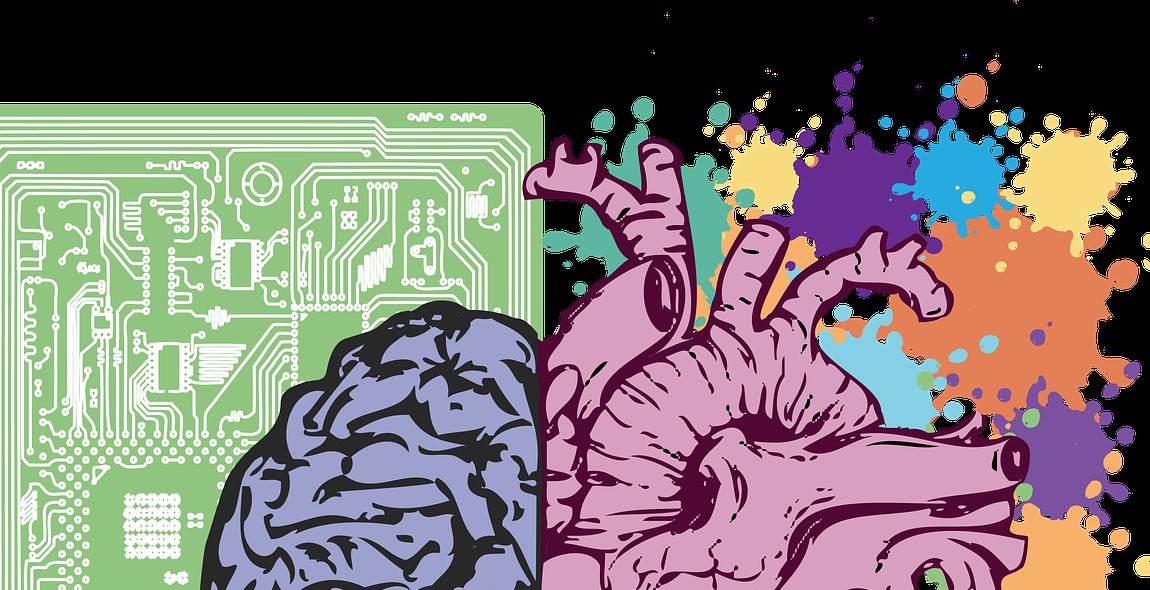The Science of Heartbreak: Understanding and Overcoming
Heartbreak is a universal experience that most people go through at some point in their lives. Whether it’s the end of a romantic relationship, the loss of a loved one, or even the disappointment of a missed opportunity, heartbreak can be a painful and overwhelming experience that can leave us feeling lost and confused.
However, recent studies have shown that heartbreak is not just a psychological experience, but also a physical one. The brain processes emotional pain in the same way it processes physical pain, which means that heartbreak can have a profound impact on our physical well-being as well.
Understanding the science behind heartbreak can help us to better cope with the pain and move on from the experience. By learning about the chemical reactions that occur in our brains during heartbreak, we can develop strategies to manage the symptoms and begin the healing process.
This article will explore the science of heartbreak, including the psychological and physiological effects of heartbreak, common symptoms, and strategies for overcoming heartbreak and moving forward.

What is Heartbreak?
Heartbreak is a term used to describe the emotional pain and distress experienced after the end of a romantic relationship. It is a feeling of deep sadness, grief, and loss that can be overwhelming and difficult to cope with. Heartbreak can affect anyone, regardless of age, gender, or sexual orientation.
The intensity and duration of heartbreak can vary from person to person and depend on several factors, including the length and intensity of the relationship, the reason for the breakup, and the individual’s coping mechanisms and support system.
Why Does Heartbreak Happen?
Heartbreak happens when a significant romantic relationship ends, whether it is due to a breakup, divorce, or the death of a partner. The end of a relationship can be traumatic and can trigger a range of emotions, including sadness, anger, guilt, and loneliness.
Research has shown that heartbreak can have a physical impact on the body, including increased stress levels, changes in appetite and sleep patterns, and even heart problems. The brain also experiences changes during heartbreak, with areas associated with reward, motivation, and attachment being affected.
There are several reasons why heartbreak can happen, including:
- Infidelity or betrayal
- Differing values or goals
- Communication breakdown
- Abuse or mistreatment
- Loss of attraction or interest
It is important to note that heartbreak can happen even in healthy relationships, and it is not always a reflection of the individuals involved. Sometimes, despite best efforts, relationships simply do not work out.
Understanding the causes and effects of heartbreak can be helpful in coping with the pain and moving forward. By acknowledging and processing emotions, seeking support from loved ones, and practicing self-care, individuals can overcome heartbreak and emerge stronger and more resilient.

The Science Behind Heartbreak
Heartbreak is not just an emotional experience, but it also has a biological basis. When we fall in love, our brain releases a chemical called dopamine, which makes us feel good and happy. However, when a relationship ends, the brain experiences a withdrawal from dopamine and other chemicals, leading to feelings of sadness, depression, and even physical pain.
The Brain and Heartbreak
The brain plays a crucial role in heartbreak. The prefrontal cortex, which is responsible for decision-making and rational thinking, becomes less active during the early stages of love. On the other hand, the amygdala, which controls emotions such as fear and pleasure, becomes more active. This explains why we sometimes make irrational decisions when we are in love. When a relationship ends, the prefrontal cortex becomes more active, making us analyze the situation more rationally. However, the amygdala remains active, causing us to experience intense emotions.
The Role of Hormones in Heartbreak
Hormones also play a crucial role in heartbreak. When we fall in love, our brain releases hormones such as oxytocin, which is responsible for bonding and attachment. However, when a relationship ends, the brain experiences a decrease in oxytocin, leading to feelings of detachment and loneliness. Additionally, cortisol, which is a stress hormone, increases during heartbreak, leading to physical symptoms such as headaches, fatigue, and even weight loss or gain.
The Connection Between Heartbreak and Physical Pain
Heartbreak is not just an emotional experience, but it can also cause physical pain. Studies have shown that the same areas of the brain that process physical pain are also activated when we experience heartbreak. This explains why some people describe heartbreak as feeling like a physical pain in their chest. Additionally, the release of stress hormones during heartbreak can cause physical symptoms such as headaches, muscle tension, and even digestive issues.
Overall, heartbreak is a complex experience that involves both emotional and biological factors. Understanding the science behind heartbreak can help us cope with the pain and move on from the relationship.

The Stages of Heartbreak
Heartbreak is a painful experience that can leave a person feeling lost, confused, and alone. It’s important to understand that there are several stages of heartbreak that people typically go through before they can fully move on from the experience. These stages are:
Denial
During the denial stage, a person may feel like the breakup isn’t real or that their ex will come back to them. They may find themselves making excuses for their ex’s behavior or ignoring the signs that the relationship is over.
Anger
As the reality of the breakup sets in, a person may feel angry about the situation. They may blame their ex for the relationship ending or feel frustrated with themselves for not seeing the signs earlier. This anger can manifest itself in different ways, from lashing out at others to engaging in self-destructive behavior.
Bargaining
During the bargaining stage, a person may try to negotiate with their ex to get back together or make promises to change in order to salvage the relationship. They may also bargain with themselves, trying to convince themselves that the breakup wasn’t their fault or that they can fix things if they just try hard enough.
Depression
As the reality of the breakup sets in and the person realizes that the relationship is truly over, they may feel a deep sense of sadness and depression. They may struggle to find joy in things they once enjoyed or feel like they can’t move on from the relationship.
Acceptance
Finally, after going through the other stages, a person will reach a point of acceptance. They will come to terms with the fact that the relationship is over and begin to move on with their life. This doesn’t mean that the pain of the breakup is gone completely, but it does mean that the person is ready to start healing and looking towards the future.
Understanding these stages can help a person recognize where they are in the healing process and give them hope that they will eventually move on from the heartbreak. It’s important to remember that healing takes time and everyone’s journey is different.

Overcoming Heartbreak
Heartbreak is a painful experience that can leave you feeling lost, confused and overwhelmed. However, it is important to remember that it is possible to overcome heartbreak and move on with your life. Here are some tips on how to do so:
Taking Care of Yourself
One of the most important things you can do after experiencing heartbreak is to take care of yourself. This means getting enough sleep, eating well, and exercising regularly. It also means taking time to do things that you enjoy, such as reading a book, watching a movie or going for a walk. Taking care of yourself will help you to feel better both physically and emotionally.
Seeking Support
Another important step in overcoming heartbreak is to seek support from others. This may involve talking to friends or family members, joining a support group, or seeking professional help from a therapist. Having a support system can help you to feel less alone and can provide you with the encouragement and guidance you need to move forward.
Letting Go
Letting go of the past is essential for moving on after heartbreak. This means accepting that the relationship is over and acknowledging the pain that comes with it. It also means forgiving yourself and your ex-partner for any mistakes that were made. Letting go can be difficult, but it is necessary for healing and moving on.
Moving On
Moving on after heartbreak involves taking steps to create a new life for yourself. This may involve trying new things, meeting new people, and pursuing new interests. It also means setting goals for yourself and working towards achieving them. Moving on can be challenging, but it is possible with time and effort.
- Take care of yourself
- Seek support
- Let go of the past
- Move on with your life
